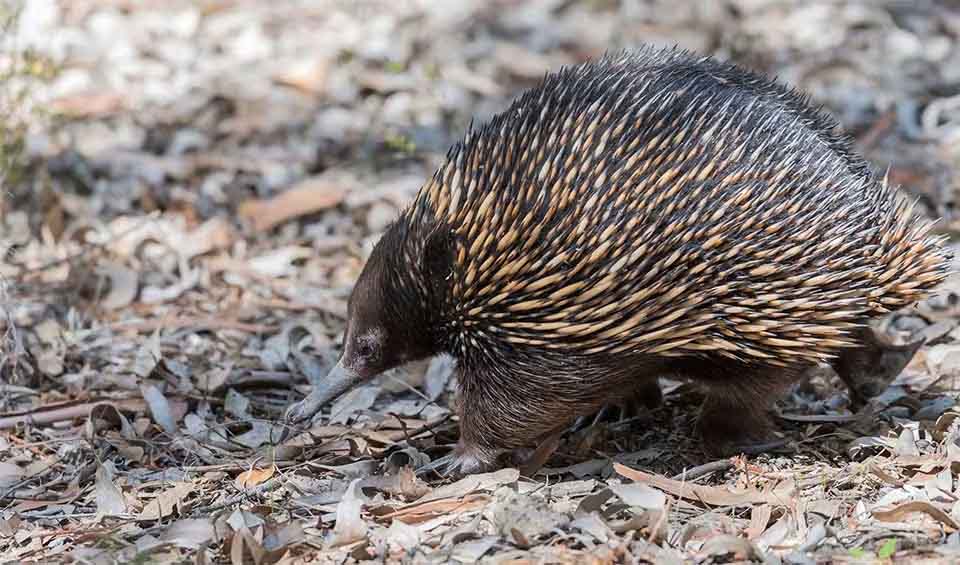This species is a testament to the evolutionary ingenuity of nature, showcasing adaptations that enable it to thrive across various habitats in Australia and New Guinea. As one of the only two extant egg-laying mammals (monotremes), the short-beaked echidna shares this unique reproductive trait with the platypus.
Characterized by their distinctive spines, short-beaked echidnas possess a coat of hard, sharp quills interspersed with dense fur. This fur can range in color from light brown to black, and its density is adapted to the environment in which the echidna lives, providing necessary insulation against colder temperatures. This natural armor serves as a defense mechanism, protecting the echidna from predators. When threatened, an echidna can curl itself into a ball, exposing only its spines to potential attackers.
The echidna’s snout is another feature that highlights its unique place in the animal kingdom. Long, slender, and toothless, the snout houses a remarkable tongue extending up to 18 centimeters (7 inches) to capture prey. This sticky, worm-like tongue is perfectly adapted for foraging ants, termites, and other small invertebrates, making the echidna an adept hunter in its environments.
Reproduction in short-beaked echidnas is a marvel of the natural world. Females lay a single, leathery egg approximately 22 days after mating, which is then deposited into a pouch on her belly for this purpose. After about ten days of incubation, the egg hatches, and the puggle (baby echidna) emerges, blind and hairless. In the absence of nipples, the mother secretes milk through specialized glands in her skin, from which the puggle sucks milk from patches of the skin known as areolae. This method of lactation underscores the primitive characteristics of monotremes, bridging the gap between reptilian ancestors and modern mammals.
Research into the cognitive abilities of short-beaked echidnas has revealed that these animals possess a level of intelligence comparable to that of a domestic cat. They can navigate complex mazes and remember the solutions for up to a year, indicating a sophisticated memory and problem-solving capacity.
Distribution
 Australia
Australia Indonesia
Indonesia Papua New Guinea
Papua New GuineaAnything we've missed?
Help us improve this page by suggesting edits. Glory never dies!
Suggest an editGet to know me
Terrestrial / Aquatic
Altricial / Precocial
Polygamous / Monogamous
Dimorphic (size) / Monomorphic
Active: Diurnal / Nocturnal
Social behavior: Solitary / Pack / Herd
Diet: Carnivore / Herbivore / Omnivore / Piscivorous / Insectivore
Migratory: Yes / No
Domesticated: Yes / No
Dangerous: Yes / No





